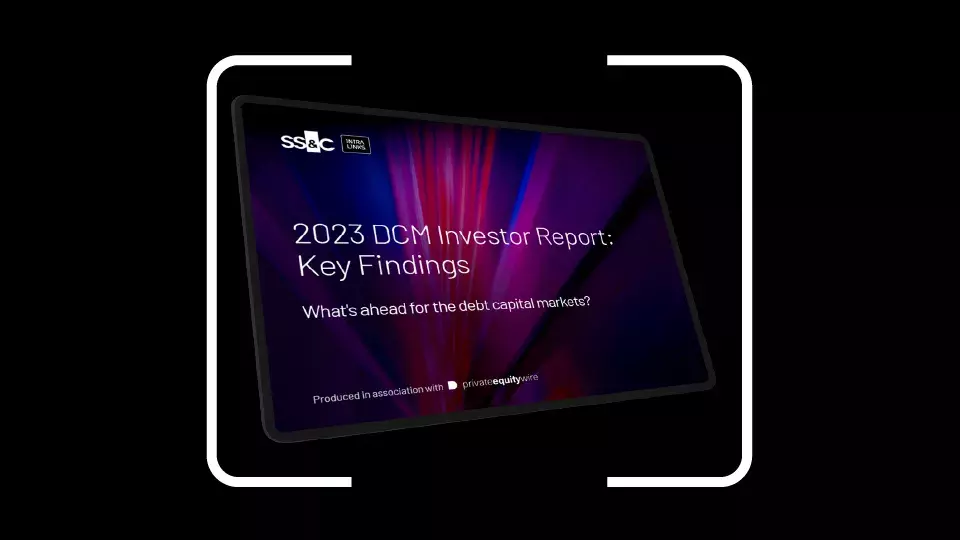Credit Suisse: What Happened and What’s Next?
Tags
Today we’re looking at the fallout from Credit Suisse’s demise and takeover by rival bank UBS and what it means for shareholders and bondholders.
Joining us to provide insights are Mergermarket’s ECM Reporter Cristiano Dalla Bona and Senior ECM Editor EMEA Samuel Kerr.
Listen to learn:
- Why Credit Suisse collapsed
- Structure of UBS’s takeover
- How the Swiss government facilitated the acquisition
- Impact on Credit Suisse shareholders, bondholders and the banking industry at large
- Potential legal impact on the deal
Dealcast is presented by Mergermarket and SS&C Intralinks.
Transcript
[MUSIC PLAYING] JULIE-ANNA NEEDHAM: Welcome to Dealcast, the weekly M&A podcast presented to you by Mergermarket and SS&C Intralinks. I'm Julie-Anne Needham, a business journalist who's been covering M&A for a decade. In this episode, we're looking at the fallout from the Credit Suisse deal with UBS and what it means for shareholders and bondholders. I'm joined by two journalists who've been covering this situation closely, Cristiano Dalla Bona, who is an ECM reporter, and Samuel Kerr, who's the senior ECM editor for EMEA. Hi, Cristiano. Hi, Sam. Thanks very much for joining me today.
SAMUEL KERR: Thanks for having us.
CRISTIANO DALLA BONA: Hello. Thank you for having us.
JULIE-ANNA NEEDHAM: So Sam, starting with you, can you, just in a nutshell, if that's possible, explain how Credit Suisse ended up in this position, please?
SAMUEL KERR: Well, it's a series of unfortunate events for the bank. Credit Suisse has been one of the problem childs of the European banking industry for quite some time. And it only recently completed a rights issue at the end of last year, one of many after the financial crisis.
Obviously, it's had its long-running scandals that people are all too familiar with. There was news very recently about financial misreporting and that its numbers not being as solid as perhaps investors had thought. But most immediately, actually, the issues with the bank started a couple of weeks ago, when the chair of the Saudi National Bank made some pretty unguarded comments that the-- they wouldn't be supporting Credit Suisse with any more capital. And that really just caused investor panic over the bank itself.
And we have to also look at it, I think, in light of what happened with Silicon Valley Bank in the US and a general concern over the global bank's asset liability mismatch that we're seeing at the moment mainly to do, obviously, with the fact that a lot of their liquid treasury assets that they hold and-- are now no longer as highly valued as they were when they bought them, meaning that, theoretically, they couldn't meet depositors should they have to meet a large depositor withdrawal.
So I think that's the general picture. And I think, obviously, we obviously have to remember that no bank could ever meet all it depositor withdrawals at any one time. That's not how the banking industry works. But there was a general feeling of fear over the global banking system. And with Credit Suisse being one of the larger problem banks that we've been writing about for so many years, I think those comments in the Saudi National Bank chair, who's actually subsequently resigned, kicked off a series of events that would have led, obviously, to Credit Suisse having to be rescued by UBS and no longer existing. And it's a story forming.
JULIE-ANNA NEEDHAM: Great. Well, that brings us perfectly to you, Cristiano. Can you explain the structure of the deal with UBS, please?
CRISTIANO DALLA BONA: Yes. So the Swiss authorities were quick to step in. And over a single weekend, the Swiss Federal Department of Finance, the Swiss National Bank, and the financial regulator, FINMA, joined the same table to set up a framework of terms that will be at the basis of this merger, which we should remember will be closing by the end of 2023-- that we hope. And this lays out what shareholders and bondholders are entitled to have.
So shareholders will receive one share in UBS for 22.48 shares in Credit Suisse. The merger consideration was a total of three billion Swiss francs. And there were access to facilities that will provide substantial additional liquidity, but also other integration framework arrangements that will probably take shape in the coming months.
What was interesting here is the treatment that part of the bondholders had because those who held what we call the additional Tier 1 bonds, or CoCos, saw a quite different treatment. These bonds are contingent convertibles that were a heritage of the financial crisis of 2008. And they are seen as a riskier investment in this typical framework. But it's the first time, really, that we see this radical approach of them being written off to zero, which is what happened as part of the decision of the Swiss authorities. And that sparked a debate that will probably be interesting to follow in the coming months, as well, from what our sources say.
JULIE-ANNA NEEDHAM: We'll come on to that in a bit more detail in a moment. But is there any shareholder approval needed for this deal either from UBS or Credit Suisse shareholders? Have Credit Suisse shareholders and bondholders had any input at all, because it sounds like this was orchestrated by the Swiss state?
CRISTIANO DALLA BONA: Absolutely. That's exactly what happened. There was no need as part of the terms for a shareholder approval. It was a decision taken by the government with the banks. And per the terms, that was a decision set for the coming months that had no need for an approval. And this prompted some stark reaction from some of the shareholders we've been speaking with that would want to voice their opinions. Although some said that they found the price favorable, still it wasn't a stress-free step for the shareholder base.
JULIE-ANNA NEEDHAM: And so Cristiano, where does it leave Credit Suisse shareholders and bondholders? The shareholders, obviously, end up with shares in UBS. But are they happy with that? And what about the bondholders, because it feels like they've missed out the most?
CRISTIANO DALLA BONA: Yes. So it will be interesting to see what the shareholder response will be in the coming weeks. But we always have evidence of what the bondholders think at the moment from a quite strong reaction that we've seen reported in the last few days. Bondholders were not happy. And always, as you can see in this case, legal action becomes an option pretty quickly. And we have seen two firms in particular exploring what's available for them to seek compensation of what they feel like is ground being swept off from their feet overnight.
JULIE-ANNA NEEDHAM: Because it feels like an unprecedented situation. Is there any history of deals like this-- I guess not in Switzerland? And also, which jurisdiction-- if there is legal action, which jurisdiction would that come under?
CRISTIANO DALLA BONA: Yes. This is an interesting case. So we've seen two main firms, Quinn Emanuel, a US-headquartered firm, and a London boutique, Pallas Partners, who have been fielding angry calls from investors who are seeking to find compensation out of the situation. And what they are exploring at the moment is two main avenues. One is based on bilateral investment treaties, where they will argue the case that their foreign investment rights were not taken into consideration and protected by the Swiss government.
And then they will try to seek additional avenues in international courts as new filings come in because-- with the thought that US courts and London courts are available, the power of discovery that the lawyers will obtain from these courts is likely to be higher. They will have access to documents that maybe if a legal case took place only in Switzerland, they would not necessarily obtain. And it's likely to take still a few weeks. But we spoke with the firms involved. And we have knowledge that they want to file shortly in Switzerland and, in the next few weeks or so, both in the US and in London.
JULIE-ANNA NEEDHAM: And Sam, as someone who's covered the equity capital markets, it is this action by bondholders something you've seen before?
SAMUEL KERR: We often have situations where bondholders get left out when you have these rescue deals happen. You're certain that any kind of rescue transaction, rescue rights issues-- in often cases, you tend to have the bondholders being burned.
So it's not-- certainly not uncommon for bondholders to be able to-- or to seek some resolution on some-- and some-- to want to get something back, really, from these deals because when you have these very top-heavy actions by governments, it tends to ask the question, well, what is an independent publicly listed company? The owners of these companies are meant to be their shareholders. And bondholders invest with that being the rationale behind their investment. When you have this large-scale government intervention, it certainly puts bondholders in a position that they couldn't have foreseen when they made that investment. So I think it's not uncommon at all for this to happen.
JULIE-ANNA NEEDHAM: And what about the impact on bondholders and the structure of those bonds in other banks, because you mentioned that these types of bonds, the CoCo bonds, were a result of the previous financial crisis? Will they be seen as a riskier investment?
CRISTIANO DALLA BONA: So the AT1 cancellation is quite consequential. And it could be one of the biggest issues about the deal in the coming months. It's going to be very hard for people to think about how to refinance existing AT1s in other situation. As one of the bankers we spoke with said, the very status quo of any other bank that has a significant portion of AT1s on their balance sheet-- so they will become, likely, more expensive across the board. And also, the UBS AT1s will get more scrutinized and more expensive-- so definitely a harder product to refinance.
JULIE-ANNA NEEDHAM: Thank you. And the legal action that you mentioned taken by Quinn Emanuel and Pallas Partners-- could that delay the closing of the Credit Suisse and UBS deal?
CRISTIANO DALLA BONA: From what we've found from experts and sources and the firms themselves, it looks like this decision is still up to the courts. The filing can be done throughout the merger control process. So we will definitely see a lot of those. But it's still uncertain what kind of impact this will have on the time frame.
JULIE-ANNA NEEDHAM: And picking up on the merger control process, it doesn't feel like a very-- an easy deal to get competition clearance on. How are they going to do that, or is that being waived in this situation?
CRISTIANO DALLA BONA: No. It can be waived on the Swiss grounds, but not in international courts. And there's always been a lot of public statements from governments saying that they will definitely take into account the full regulatory framework that a normal merger control process would require, which was quite skirted through the Swiss talks over the weekend and in the ensuing week.
JULIE-ANNA NEEDHAM: Great. Thank you, Cristiano. And Sam, coming back to you, what has been the wider impact of this on the banking sector? We had the collapse of Silicon Valley Bank and now Credit Suisse. Where does it leave other banks?
SAMUEL KERR: So I think the first thing we need to say is the speed of this has been exceptional. About two or three weeks ago, no one would have expected or would have been even talking about this. We even wrote a piece that banks were the hottest stocks to own in equity markets. And they were. We were getting a lot of indication from banks that investors were pouring in, asking for big block trades in banks. Following on, we had a huge sell-down in BNP Paribas by the Belgian government. And there was a lot of idea that the banks would-- bank privatizations would continue with the UK government, with Ireland, and others.
So the whole environment has changed completely within a short space of time. There is still, I think, a feeling of fear around the entire global banking sector because of the issues that we brought up at the top of this podcast, with the issues of asset-liability mismatch, particularly in the rising interest rate environment.
At the moment, it feels like things have calmed down. At the tail end of last week, the week that Credit Suisse was taken over by UBS, we did see a very big move in the credit default swaps of Deutsche Bank, which then had a subsequent effect on the share price. That does seem to have settled. And there doesn't seem to be any more talk yet that that is a bank that could be troubled. But there is, unfortunately, a lot of memory of the global financial crisis. And people are asking if Credit Suisse is the Bear Stearns of this crisis, who is going to be Lehman Brothers? And is there going to be a Lehman Brothers? One would, obviously, hope not.
But I think if you look at the situation we have at the moment and we bring it back to the macro environment, we have a situation where global central banks are still focused on a fight against inflation. The Fed raised interest rates at its last meeting. So did the ECB. And if you look at the CME FedWatch tool, there is an expectation that rate rises will continue. So we are going to get a situation where bank assets will continue to be pressured by that rising interest rate environment. And there will be further questions asked about banking liquidity and their ability to meet deposit obligations.
So this isn't going to go away. And the more rates rise, the more we will have possible pressure for banks. And there could be two weeks' time another Credit Suisse. We hope not at that scale. But we certainly can't write it-- can't rule it out. And I think, when you're looking at the general markets, that now is the two-pronged fear that we have at the moment of the fight against inflation, which has been on everybody's minds now for-- really, since the beginning of 2022 and now this pressure that is seeping into the global financial system and the possibility that we could have similar incidents that we saw to the great financial crisis in 2008. And that there's not a great atmosphere to be in, I think.
And certainly for equity investors, if you're looking globally, its positioning-- very, very difficult because you have no idea what to expect. And they do say banks do fall more quickly than others. And Credit Suisse is an absolute example of that.
JULIE-ANNA NEEDHAM: Great. Thank you very much, Sam and Cristiano. That was Cristiano Dalla Bona and Samuel Kerr. Thanks for listening to Dealcast, presented by Mergermarket and SS&C Intralinks. Please rate, review, and follow the podcast. You'll find us on Apple Podcasts, Spotify, or look out for your Mergermarket news alert. For more information about what we've been discussing, have a look at our show notes. Join us again next week.




